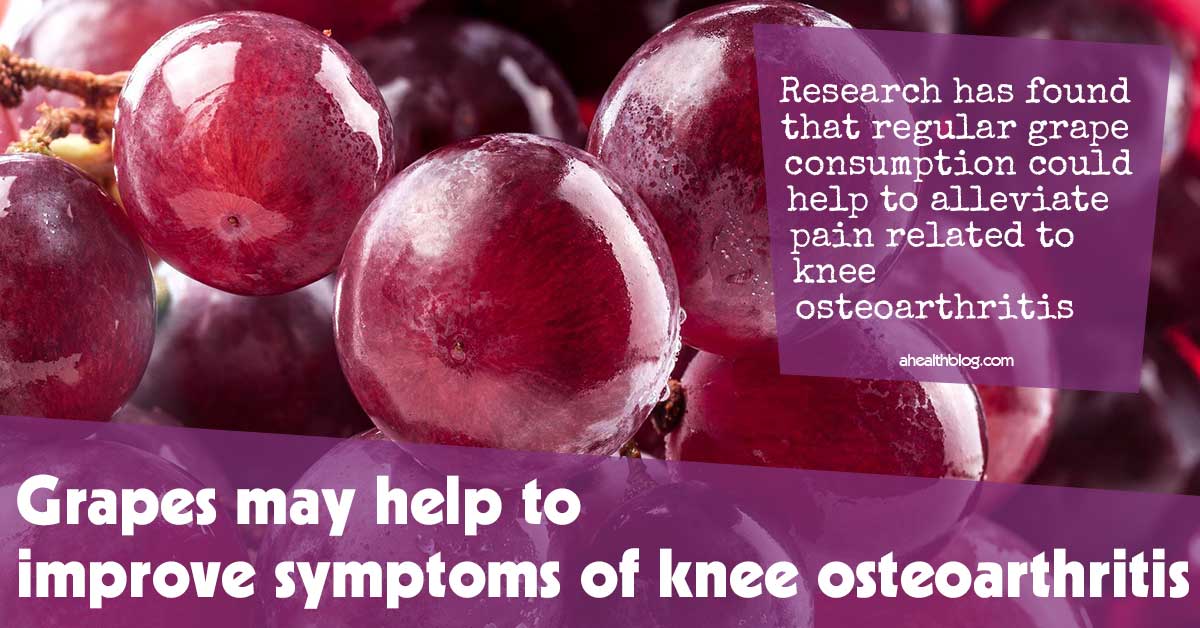3. Grapes may help to improve symptoms of knee osteoarthritis
The results of a study indicate that regular consumption of grapes could help to alleviate pain related to symptomatic knee osteoarthritis, as well as improve flexibility of the joint and overall mobility. The potential benefits are attributed to the polyphenols that are found in grapes.1✅ JOURNAL REFERENCE
DOI: 10.1096/fasebj.28.1_supplement.1025.8
The 16 week study was designed to look into how the consumption of grapes could improve inflammation and the outcomes of osteoarthritis. 72 women and men with osteoarthritis of the knee were given either a placebo powder or grapes available as a freeze-dried grape powder.
The study results revealed that both women and men who consumed a diet enriched with grapes had significant reductions in self-reported pain associated with activity and an overall reduction in total symptoms of the knee. This beneficial effect was more noticeable in females.
Age-related differences were also seen: there was a 70% increase in very hard activity for individuals under 64 years old who consumed the grape powder, while individuals receiving the placebo experienced a significant reduction in very hard activity. Individuals older than 65 years experienced a decline in moderate to hard activities, regardless of whether they consumed the placebo or the grapes.
Evidence of increased metabolism of cartilage was seen in men who consumed the diet enriched with grapes; they had higher levels of IGF-1, an important cartilage growth factor compared to individuals who consumed the placebo. This protective effect wasn’t seen in the females.
No range of motion difference was seen in either the placebo or the grape group. The serum marker for inflammation (IL1-ß) measured was increased in both grape and placebo groups, although much less of an increase was seen in the grape group.



